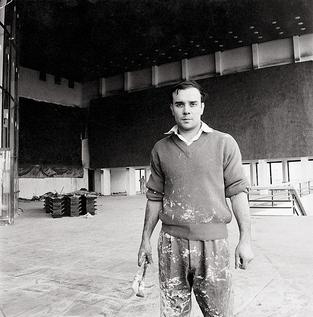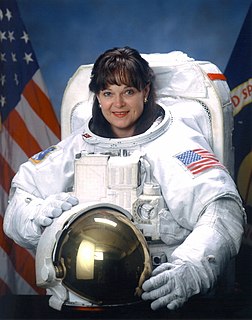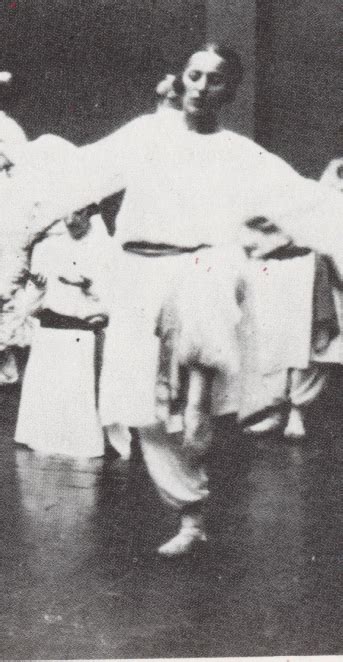Top 1200 Space Shuttle Quotes & Sayings - Page 18
Explore popular Space Shuttle quotes.
Last updated on November 26, 2024.
Individuals inherit a particular space within an interlocking set of social relationships; lacking that space, they are nobody, or at best a stranger or an outcast. To know oneself as such a social person is however not to occupy a static and fixed position. It is to find oneself placed at a certain point on a journey with set goals; to move through life is to make progress - or to fail to make progress - toward a given end.
This is how space begins, with words only, signs traced on the blank page. To describe space: to name it, to trace it, like those portolano-makers who saturated the coastlines with the names of harbours, the names of capes, the names of inlets, until in the end the land was only separated from the sea by a continuous ribbon of text. Is the aleph, that place in Borges from which the entire world is visible simultaneously, anything other than an alphabet?
So my message is in whichever realm, be it going into space or going into the deep sea, you have to balance the yin and yang of caution and boldness, risk aversion and risk taking, fear and fearlessness. No great accomplishment takes place, whether it be a movie or a deep ocean expedition, or a space mission, without a kind of dynamic equipoise between the two. Luck is not a factor. Hope is not a strategy. Fear is not an option.
It was very definitely architectural. I was using the words on the page as some kind of equivalent of a physical model. But I never thought at that point that I wanted to move toward architecture. I wanted to move toward real space. Sure, that's probably another way of saying, I want to move toward architecture. But I didn't define real space in terms of architecture, then.
I only ever really follow the music, that's what I'm about, I don't think about it too much. I just wanted to make a piece to sleep through, to sort of explore that sleeping space as a listening space and to have a different encounters between our listening minds or hearing minds and music. I think that's really interesting. After that I feel I've done my job.
I was transformed by picking up a pair of binoculars and looking up, and that's hard to do for a city kid because when you look up you just see buildings - and really, your first thought is to look in people's windows. So to look out of the space - out of living space - and look up to the sky, binoculars go far, literally and figuratively.
I was fortunate enough, after many visits to many wonderful, weird people to come across Burt Rutan, who is a genius in the Mojave Desert. And SpaceShipOne was born and had three flights into space that won something called the X Prize. And from there, we're building SpaceShipTwo, which is ... a beautiful spaceship that is very, very, very nearly completed and will be ready from about next Christmas onwards to start taking people into space.
In order to understand, it is immensely important for the person who understands to be located outside the object of his or her creative understanding—in time, in space, in culture. For one cannot even really see one's own exterior and comprehend it as a whole, and no mirrors or photographs can help; our real exterior can be seen and understood only by other people, because they are located outside us in space, and because they are others.
Mankind's journey into space, like every great voyage of discovery, will become part of our unending journey of liberation. In the limitless reaches of space, we will find liberation from tyranny, from scarcity, from ignorance and from war. We will find the means to protect this Earth and to nurture every human life, and to explore the universe. . . .This is our mission, this is our destiny.
World War Two was a world war in space. It spread from Europe to Japan, to the Soviet Union, etc. World War Two was quite different from World War One which was geographically limited to Europe. But in the case of the Gulf War, we are dealing with a war which is extremely local in space, but global in time, since it is the first 'live' war.
Charles Bernstein's pairs of jingles of 'public discourse' are 'simultaneous double narrative / the space between's the other narrative/as if they're opposite.' In the space between, outside representation but in the 'presence' of it, we are provoked to laugh. Bernstein alters our language to open a double range that's public and mind at once and inseparable, that is 'Poetry is patterned thought in search of unpatterned mind.' Girly Man is doing it.
Whatever an artist's personal feelings are, as soon as an artist fills a certain area on the canvas or circumscribes it, he becomes historical. He acts from or upon other artists. An artist is someone who makes art too. He did not invent it. How it started — "to hell with it." It is obvious that it has no progress. The idea of space is given him to change if he can. The subject matter in the abstract is space. He fills it with an attitude. The attitude never comes from himself alone.
Space exploration must be undertaken not only out of simple human curiosity but also to further the survival of the species. The twentieth century has seen the unprecedented development and proliferation of magnificent technologies. Many of them, through design, ignorance, or misuse, are capable of destroying life as well as enhancing it. Space exploration alone holds the promise of eventual escape from a dying planet, provided we wisely manage our resources in the meantime and actually survive that long.
If we discovered that, you know, space aliens were planning to attack and we needed a massive buildup to counter the space alien threat and really inflation and budget deficits took secondary place to that, this slump would be over in 18 months. ... There was a Twilight Zone episode like this in which scientists fake an alien threat in order to achieve world peace. Well, this time, we don't need it, we need it in order to get some fiscal stimulus.
I am in a space now where I can try anything; and with Pink Floyd we've always been in a space where we were able to try out anything. I think we were very young then and we were very keen to experiment and try things out. It seems to me that this sort of experimenting is like working yourself towards something and trying to find what you like and what you want.
The immaterial blue colour shown at Iris Clert's in April had in short made me inhuman, had excluded me from the world of tangible reality; I was an extreme element of society who lived in space and who had no means of coming back to earth. Jean Tinguely saw me in space and signaled to me in speed to show me the last machine to take to return to the ephemerality of material life.
Vocal music is an attempt to take the whole human being and project it into space. It is the ultimate gesture of getting out of yourself. You take a part of you that is most private, most personal, most inward and you hurl it out into space - you project it as far as you can. That gesture of opining this whole region of the body results in an enormous spiritual release, and is felt by other people with tremendous impact.
This whole issue of limits to growth, which provides a psychological, as well as a physical, cap on potential expansion of activity and awareness, has had a very depressing effect on many people.... I don't for a moment think that there's any concept which anyone's working with now which will be followed as a straightforward scenario. But the idea embodied in concepts such as space colonization or space industrialization, or availability of nonterrestrial resources, is fundamental, and it will change the way in which people look at the future.
... the only other place comparable to these marvelous nether regions, must surely be naked space itself, out far beyond atmosphere, between the stars, where sunlight has no grip upon the dust and rubbish of planetary air, where the blackness of space, the shining planets, comets, suns, and stars must really be closely akin to the world of life as it appears to the eyes of an awed human being, in the open ocean, one half mile down.
We have indeed been out in space, but some are under the illusion that we have been off Earth. In reality humans have never been off Earth. We have always been on a piece of Earth in space. We survive only as long as we can breathe the air of Earth, drink its waters, and be nourished by its foods. There is no indication that as humans we will ever live anywhere else in the universe. Place, too, is continuously being transformed but only within its own possibilities.
Over the past 50 years we got versions of X-ray specs and space vacations, and even death rays. But the X-ray specs don't fit on your face - they're big things that screen your luggage for guns. Space vacations are real, but they cost $20 million. We have death rays, but you have to be a triple Ph.D. to play with them.
If you are walking down the street, camera in your hand, loaded and ready to shoot. You see a person falling from a high building, either having fallen or jumped. That person is falling through space. You don't shoot that photograph unless the theme you are working on has to do with the effects of space on the human figure. If you simply photograph that event because it is an event that is happening, you're doing photojournalism.
Dancing is surely the most basic and relevant of all forms of expression. Nothing else can so effectively give outward form to an inner experience. Poetry and music exist in time. Painting and architecture are a part of space. But only the dance lives at once in both space and time. In it the creator and the thing created, the artist and the expression, are one. Each participates completely in the other. There could be no better metaphor for an understanding of the mechanics of the cosmos.
T I was doing Predators, this new movie for FOX simultaneously, and this character that I play in the movie is "Walter Stands," and I had a plethora of ink all up and down my skin.Once you have ink on your body, how it informs you as an actor, and you kind of get in that space and occupy that space of that character, when you're without them, when I'm just Walton Goggins in the world and I'm without my tattoos, I feel a little naked.
At two-tenths the speed of light, dust and atoms might not do significant damage even in a voyage of 40 years, but the faster you go, the worse it is--space begins to become abrasive. When you begin to approach the speed of light, hydrogen atoms become cosmic-ray particles, and they will fry the crew. ...So 60,000 kilometers per second may be the practical speed limit for space travel.
R&D generally has been a bipartisan thing, because in the IT space, in the medical space, the U.S., the benefits to ourselves and the world and our economy have been very, very clear. I'm hopeful we can make a very strong case there. Energy is actually harder; it takes more time to get a product, but if you do it's a very, very big market and the constraints of doing that in a clean way are more obvious all the time.
There is a beautiful expression of this in the Chandogya Upanishad: 'There is this City of Brahman, (that is the body), and in this city there is a shrine, and in that shrine there is a small lotus, and in that lotus there is a small space, (akasa). Now what exists within that small space, that is to be sought, that is to be understood.' This is the great discovery of the Upanishads, this inner shrine, this guha, or cave of the heart, where the inner meaning of life, of all human existence, is to be found.
Ambient means the natural center or atmosphere of a space. All music has that in it- a space or center. I think it just means the atmosphere or what defines the environment of sound and maybe removing the more destructive, harsh elements and harder rhythmic elements and you get down to the stillness that's inherent. There's an ambient quality in every sound. You may have to enhance that to hear it or bring it out in a different way but there is that in every environmental sound.
We must acknowledge that we made a huge error in satisfying the lowest common denominator of the available human potential in Nigeria and we elevated what I call the reign of mediocrity. Quite frankly, I think it is about repudiating the past, creating space for new thinking for the best of the new generation, creating both political and geographical space and going at it with single mindedness that says, 'enough of buttering, sentiments and massaging the ego of the old brigade'.
Bistromathics itself is simply a revolutionary new way of understanding the behavior of numbers. Just as Einstein observed that space was not an absolute but depended on the observer's movement in space, and that time was not an absolute, but depended on the observer's movement in time, so it is now realized that numbers are not absolute, but depend on the observer's movement in restaurants.
But in order to survive in this foreign world, I had to teach myself that love was very much like a painting. The negative space between people was just as important as the positive space we occupy. The air between our resting bodies, and the breath in our conversations, were all like the white of the canvas, and the rest our relationship- the laughter and the memories- were the brushstroke applied over time.
I realize that the 2020s are going to be completely different than this decade has been. There's going to be rapid progress. One of the most important aspects is going to be cheaper access to space. It changes everything. We have the ideas and the technology to do a lot of things, but we're limited financially, so, by reducing the cost of access to space, the whole problem is changed. Ultimately, the pieces that are coming together are going to allow us to send humans to Mars - and bring them back.
Exercise is very important, first of all if you think about it, especially in a long flight like a six month space flight and on the ISS. If you didn't exercise and used the analogy on earth, it would be like laying in bed. So, just imagine laying in bed for several months, and even just trying to get up and walk, you probably wouldn't be able to. But if you got up and you exercised two hours a day, you'd probably be okay, and that's the same in space.
It has always been my experience that, whatever groupings I choose for my books, the space in which I plan to lodge them necessarily reshapes my choice and, more important, in no time proves too small for them and forces me to change my arrangement. In a library, no empty shelf remains empty for long. Like Nature, libraries abhor a vacuum, and the problem of space is inherent in the very nature of any collection of books.
A thinking mind is not swallowed up by what it comes to know. It reaches out to grasp something related to itself and to its present knowledge (and so knowable in some degree) but also separate from itself and from its present knowledge (not identical with these). In any act of thinking, the mind must reach across this space between known and unknown, linking one to the other but also keeping visible to difference. It is an erotic space.
I define Inner Space as an imaginary realm in which on the one hand the outer world of reality, and on the other the inner world of the mind meet and merge. Now, in the landscapes of the surrealist painters, for example, one sees the regions of Inner Space; and increasingly I believe that we will encounter in film and literature scenes which are neither solely realistic nor fantastic. In a sense, it will be a movement in the interzone between both spheres.
I would love to see the world's space programs continue toward sending humans to an asteroid or to Mars, with, of course, a full plan in place to bring them back. That excites me. And one of the things that excites me most about space is that we can go up there and put spacecraft in orbit with sensors that will help us measure the health of our planet, which is becoming particularly important. Our planet needs to be observed.
Sci-fi uses the images that sf - starting with H.G. Wells - made familiar: space travel, aliens, galactic wars and federations, time machines, et cetera, taking them literally, not caring if they are possible or even plausible. It has no interest in or relation to real science or technology. It's fantasy in space suits. Spectacle. Wizards with lasers. Kids with ray guns. I've written both, but I have to say I respect science fiction enough that I wince when people call it sci-fi.
I sometimes ask myself how it came about that I was the one to develop the theory of relativity. The reason, I think, is that a normal adult never stops to think about problems of space and time. These are things which he has thought about as a child. Bu t my intellectual development was retarded,as a result of which I began to wonder about space and time only when I had already grown up.
Too many of us have lost the passion and emotion of the remarkable things we-ve done in space. Let us not tear up the future, but rather again heed the creative metaphors that render space travel a religious experience. When the blast of a rocket launch slams you against the wall and all the rust is shaken off your body, you will hear the great shout of the universe and the joyful crying of people who have been changed by what they-ve seen.
We are at the moment looking at space as something to be entered by the tremendous thrust of a rocket because that is the attitude of attacking the unknown. And that causes us not to realize that we are already on the most magnificently equipped spaceship, which could hardly be improved upon. It has got a source of temperature and energy just at the right distance from it. It's beautifully equipped with oxygen, with food supplies, with all kinds of delightful things to do while on the journey.... and it's traveling through space at a colossal speed... and it's called the planet Earth.
Any time you do something, you make decisions about time and space. I wanted those decisions to be out of my hands. I could be dragged, carried along by another person, I could be a receiver. I could be the agent of the overall scheme, but I didn't want to be the agent of the particular action. I could make the ultimate decision that my space is going to change now, but I don't know where it's going to go.
One of the things that makes it so challenging is that we're constructing the Station hundreds of miles above the surface of the Earth and we're doing it one piece at a time For the International Space Station we do not have the privilege of assuming the Space Station is on the ground before we take it up one piece at a time. So we have to be very clever about the testing that we do and the training that we do to make sure that each mission is successful, and that each piece and each mission goes just as it's planned.
Here I shall add that the concept of change, and with it the concept of motion, as change of place, is possible only through and in the representation of time. & Motion, for example, presupposes the perception of something movable. But space considered in itself contains nothing movable; consequently motion must be something which is found in space only through experience -in other words, is an empirical datum.
Superhero science has taught me this: Entire universes fit comfortably inside our skulls. Not just one or two but endless universes can be packed into that dark, wet, and bony hollow without breaking it open from the inside. The space in our heads will stretch to accommodate them all. The real doorway to the fifth dimension was always right here. Inside. That infinite interior space contains all the divine, the alien, and the unworldly we’ll ever need.
I'm not sure if I could tell the difference—between just staring into space and thinking. We're usually thinking all the time, aren't we? Not that we live in order to think, but the opposite isn't true either—that we think in order to live. I believe, contrary to Descartes, that we sometimes think in order not to be. Staring into space might unintentionally have the opposite effect.
Perhaps the safest thing to do at the outset, if technology permits, is to send music. This language may be the best we have for explaining what we are like to others in space, with least ambiguity. I would vote for Bach, all of Bach, streamed out into space, over and over again. We would be bragging of course, but it is surely excusable to put the best possible face on at the beginning of such an acquaintance. We can tell the harder truths later.
My reluctance to use alien invasion is due to the feeling that we are not likely to be invaded and taken over. It would seem to me that by the time a race has achieved deep space capability it would have matured to a point where it would have no thought of dominating another intelligent species. Further than this, there should be no economic necessity of its doing so. By the time it was able to go into deep space, it must have arrived at an energy source which would not be based on planetary natural resources.
The seemingly insuperable difficulties of deep-space travel suggest an intention to keep us fixed at home in our own solar system, and the physical nature of our part of the Universe, as well as the basic rules of physics and chemistry, have a warning look about them, like barriers designed to isolate intelligent life. This means that for us, unlike the situation for humble microorganisms, deep-space travel is probably a stark impossibility.


























































